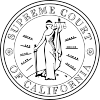Yeaw v. Boy Scouts of America was a high-profile case filed in 1997 before the Supreme Court of California[1] to determine whether the Boy Scouts of America is a business establishment within the meaning of the Unruh Civil Rights Act (Civ. Code, § 51) or has the right to exclude girls from membership.[2]
| Yeaw v. Boy Scouts of America | |
|---|---|
 | |
| Holding | |
| The Boy Scouts of America are not considered a "business establishment" and do not fall under the provisions of California's Unruh Civil Rights Act. Decision of the Court of Appeal is reversed. | |
| Laws applied | |
| Unruh Civil Rights Act (Cal. Civil Code § 51) |
Background edit
Katrina Yeaw attempted to join her twin brother Daniel's Boy Scout Troop No. 349 in the Golden Empire Council in her hometown of Rocklin, California. When she was rejected due to the fact she is female, she filed suit against the Boy Scouts of America, accusing them of discrimination.[2][3][unreliable source?][4][5]
See also edit
References edit
- ^ "Yeaw v. Boy Scouts of America (Court Docket)". Docket Alarm. Washington, D.C. Retrieved January 2, 2017.
- ^ a b "Yeaw v. Boy Scouts of America". DUI Defenders. Calabasas, California: FDPInc.net. Archived from the original on February 14, 2018.
- ^ "Katrina Yeaw v BSA". Exclusionary Practices & Policies of the Boy Scouts of America. January 22, 2005. Archived from the original on November 17, 2007. Retrieved January 8, 2022.
{{cite web}}: CS1 maint: unfit URL (link) - ^ "Girl Sues to Become Boy Scout". Ms. (website ed.). August 21, 1997. Archived from the original on January 16, 2017. Retrieved January 8, 2022.
- ^ Warrick, Pamela (March 27, 1998). "Girls, Gays and Agnostics Need Not Apply. Oh, Really?". Los Angeles Times. Archived from the original on October 17, 2018. Retrieved January 8, 2022.